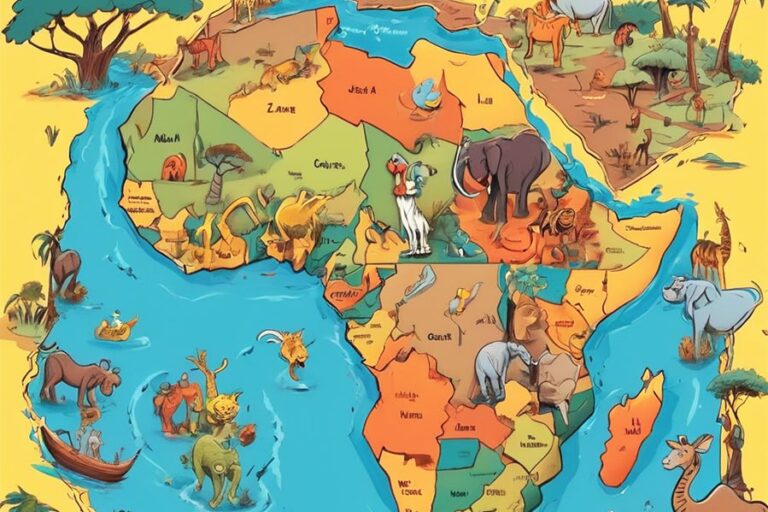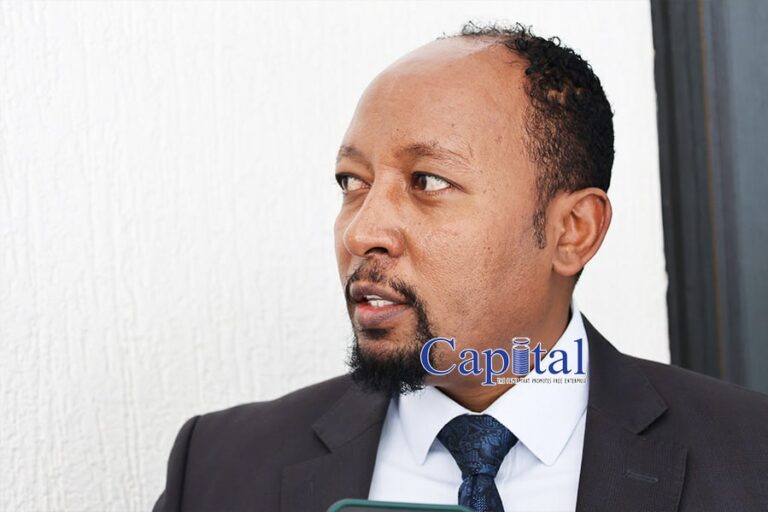Four matches to go to the Ethiopian premiere league season climax, the championship title turned out to be a two horse race between top tier new comers Ethiopia NegedBank and the veteran side Mechal. The Purple Shirts are leading the league roaster five points clear of second place Mechal.
Though it is a bit bizarre to understand how come a newly promoted team could claim the coveted championship trophy, these days it became a common trait to Ethiopian football for in less than ten years two clubs namely Jimma AbaJifar and Mekele SebaEnderta won the title in the very first season of their respective promotion and an irony there for the national team and Medin FC head Coach Gebremedin Haile was the boss in both teams.
If NegedBank won the title against all odds, it becomes the third team to share the history shelf and all credit to Head Coach Beselot Lulseged who managed the storm to guide the team to a miraculous success.
On the other side the second oldest team in the country that go along many success stories Mechal appears ready for its first ever premier league title. Five points behind the league leaders and four wins and one draw in the last five matches, Machal is the only side that could deny the new comers their first ever premier league championship title. Shadow man Abraham Mebratu from behind and Coach Gebrekristos Birara in the front, Machal have its own destiny in its hand that is winning all the remaining four matches while waiting cross handed praying for NegedBank’s slip down. Baherdar is third in the table but since it is 11 points behind with four matches remaining, it already appears out of title contention.
Attacking midfielder Kenan Markneh, play maker Shimeles Bekele and target man Menyelu Wondemu in their best form, Mechal could win all the remaining fixtures against Fasil, Adama, Wolayta and Diredawa.
Unbeaten in the past five consecutive matches and leading the table with five points clear, NegedBank’s remaining adversaries are Kidus Giorgis, Baherdar, Shashemene and Ethiopia Medin. Could any one of them manage a major upsets is the million Birr question. The 2024 EPL coveted trophy appears to be already in NegedBank’s bag.
Ethiopia NegedBank close to historic championship title
Name: Hanan Ahmed
Education: AAU School of Commerce graduate
Company Name: Han’s Care Reusable Sanitary Manufacturing
Title: Founder
Founded in: 2021
What it does: Reusable Sanitary Products for women/girls and the elderly
Headquarters: Addis Ababa
Startup capital: 450,000 ETB
Current capital: over 10,000,000 ETB
Number of Employees: 14
Reason for Starting the business: Lack of awareness and personal experiences with miscarriages and ectopic pregnancy
Biggest perk of ownership: Becoming my own boss, and learning new things every day to grow and serve more people
Biggest strength: Resilient to things I believe in, and I finish what I start
Biggest challenge: As a woman, the road to start a business was not easy, starting from licensing and getting the product known
Plan: Set up a big manufacturing place and ensure every girl that goes to school has access to sanitary products
First Career: A modest fashion wear designer
Most interested in meeting: Oprah Winfrey
Most admired person: My mom and Oprah Winfrey
Stress reducer: Dua/Prayer
Favorite book: The Wisdom of Sundays by Oprah & Worthy by Jamie Kern
Favorite past time: Me time with nature and time with my daughter
Favorite destination: BALI/BORA BORA
Favorite automobile: MERCEDES BENZ & AUDI
Africa needs its own ideology
Ideology is nothing more than a set of principles (considered or not) internalized by individuals or communities, explicitly stated or not. The current negative connotation associated with the word ‘ideology’ is (to a large extent) a legacy of rigid political, religious, etc., doctrines of the recent past, like Marxism, Nazism, Fundamentalism, etc. Acknowledged or not, the reigning global ideology is neoliberalism or unfettered capitalism, more to the point. Under (almost) half a century of its rule, a lot has changed globally. Its neglect or outright violence against nature stands out as its major crime. Inequality within countries and polarization between nation-states is another hallmark of its legacy, to say nothing about perennial wars on which it voracious feeds. As a result, the world is now in a state of chaos, threatening to become unmanageable. Many have no clue as to what to do, including the putative African states!
Africa needs a new ideology, perforce! Those of us residing in the periphery of the prevailing world system still have a fighting chance to redefine what social existence ought to be, based on the natural tendency of all creatures, which is, the sustenance/reproduction of God-given lives. In this regard, the core countries of the world system, i.e., the materially rich nations of the OECD are, (probably) in a more difficult position than us, as they have been wholly incorporated within the inhumane logic of capital; physically, intellectually, emotionally, materially, culturally, spiritually, etc. The alienation capital has bestowed on them has left them atomized and powerless, especially when it comes to challenging the ‘unnaturalness’ of their social being. It has been and still is a taboo to question the merit of many of the diktats of capital, monopoly or otherwise. Consequently, a good portion of the Western sheeple has decided to forgo some of the key prerogatives of its natural existence. For instance, procreation, which is the defining characteristic of all life forms, is becoming anathema (almost) to the average sheeple in the OECD, because of non-conducive socio-economic reality on the ground. When such an insensitive social system of superficial contraptions denies the sheeple the very life force of existence, the whole charade must be severely interrogated! The sheeple’s failure or put another way, the stifling characteristic of the system, particularly when it comes to asserting the fundamentals of life, has become increasingly disturbing. Encouraging the sheeple to passionately engage in useless/frivolous activities, while forcing it to negate the basics of life says a lot about the system’s capacity to completely subjugate the population’s psyches. This system is inherently vile and evil!
The real question for Africans remains; do we have what it takes (the C’s) to eject ourselves from this dominant global ideology that systemically enslaves humanity for the sole benefit of accumulation/profit. We believe our new ideology should come about via; Commitment, Confidence, Competence, Compassion, Cooperation… These are amongst the basic ingredients needed to foster a more democratic, a more egalitarian, a more peaceful and a more resiliently sustainable existence. Commitment to have the fortitude to propagate life; Confidence not to be swayed by detractors, and to hold on to our Commitment with tenacity; Competence to achieve the task at hand by forging all round capability built on formidable foresight; Compassion to accept the inherent fallibility of humanity, in all its forms; and Cooperation to solidify harmony within diversity. We agree these are not easy to come by, but since we’ve got nothing to lose we might as well give it a go! Once such initiatives are seriously initiated, Africa can earnestly tackle the challenges of survival based on a different and more humane ideology, with a view to create livable societies, not only to ourselves! Granted, there will be immense obstacles along this difficult journey, but the high level of internalized Commitment should see us through, hopefully! As it stands, our blind submission to crass consumerism will only lead to more unmet desires (not needs) and to even more unmet satisfactions. Fulfillment remains a chimera to many a sheeple in our fast collapsing world system, despite increased nihilistic gluttony across the globe! Again and to be sure, the whole project will not be easy to pull off, as the gatekeepers of inhumanely derived capital, the psychopaths/sociopaths, will be up in arms to frustrate the humane initiative.
A good portion of the challenge to the above project will come from our learned experts, deployed as useful operators by the bosses of the world system. On its own, this will be a formidable challenge, as majority of our leading elites (not only the political ones) are fully assimilated into the numbed and non-thinking existence of blindly worshipping material affluence. In other words, outside of their gadgets and phony conveniences, our elites have become consuming zombies!
Modernizing Ethiopia’s financial sector through data-driven innovation
In this interview, Kinfemichel Yibkaw, an expert on Ethiopia’s financial sector, discusses the importance of comprehensive data for modernizing financial service delivery in the country. He highlights the challenges Ethiopia faces in organizing and utilizing data effectively to improve banking, lending, and other vital financial services.
Kinfemichel emphasizes how access to accurate, focused data can provide crucial insights that enable financial institutions to better understand and serve their customers. He also addresses the barriers to digital transformation in Ethiopia’s financial system, including uneven technological capabilities across institutions and the need for collaborative approaches between banks and specialized technology providers.
Kinfemichel Yibkaw Abraha is a financial services and financial inclusion expert based in Ethiopia. For over seven years, Kinfe has been working in the development sector with local and international NGOs, including projects funded by USAID and DFID. He currently works to develop and assesses financial inclusion interventions. Kinfe has worked in the microfinance sector, supporting projects that support women’s financial inclusion and also supporting agriculture value chains.
Kinfe worked in banking for many years, doing domestic retail, trade service, corporate lending and credit banking. In this capacity, he developed a deep understanding of the regulatory environment.
Kinfe holds a Bachelors in Economics from Unity University College in Addis Ababa, and an MSC from the Maastricht Graduate School of Governance at the University of Maastricht. He also obtained diplomas in accounting from Addis Ababa University Commercial College and microfinance from Uganda Martyrs University in Kampala. Excerpts;
Capital: Comprehensive data is becoming increasingly important for the financial sector to modernize service delivery. What is the status of Ethiopia?
Kinfemichel Yibkaw: If we look at finance and other services, there are situations where data limitations as a country arise as a major problem. Data is generated in various forms on a daily basis because it is something that is generated on a daily basis. But the big question is how that information can be used for profit or for the benefit of others. It can be very difficult to quickly access information when the service is provided manually. This is one of the things that can make information useful. We can’t easily find the information in the manual. Therefore, capturing this information in a digitally relevant format is crucial. The other side of the equation is important. It gives us the opportunity to see, compare, and conduct in-depth research from many angles when the information comes from different sources and has different seas. The country faces this problem. There’s a lot of work to be done on organizing data.

Capital: What kind of information can be used for financial services?
Kinfemichel: Financial services are often referred to as well-known services, such as loans and savings. Not only do they have access to these common services, but they can also meet their needs by providing better services based on the day-to-day activities of the community. The financial system and the system must also come into this. There are other bank or microfinance users. What kind of services do you suggest? What is their response to the services? It gives them an opportunity to come up with a better service based on what they think needs to be improved, whether it’s their opinions about the service or the information they have with the bank.
Capital: What is the impact of unprecedented data on the financial sector in the industry?
Kinfemichel: All kinds of information on the financial sector should be made clear in such a way that it is accurate, not speculative. They need to focus on information that can’t be found anywhere else. There is a widespread trend of mis information, especially in the context of financial services. Data should be in the most focused form and give us insight that we can’t find. As a result, the decentralized information system of the industry can gradually have an impact on the industry.
Capital: How to adapt the country’s data and technology?
Kinfemichel: This process has been new to the institutions that provide services when we talk about digital financing 10 or more years ago. But now that they’re done with the new technology, it’s becoming more and more apparent that they’re doing it. He is now investing in technology as well as banking services. But what’s important is that we organize all the information we have in a way that we can use. It is often the case that the financial services are not connected to the financial institutions. The reason for this is that the system is very complicated and there is a service that does not like any risk and that the risk is fully covered by bonds, and the majority of the population is not able to provide a mortgage. But what is the role of each other in the development of the economy and what is happening in other countries as well as what is happening in the world? It’s important to get out of the usual way of collecting data using data in a variety of ways to determine what the ability to return when taking out a loan. There are starts, but it needs to be worked on.

Capital: What is the reason for the lack of access to digital banking services? What is the difference between the two systems?
Kinfemichel: When it comes to digital modernization, it requires a lot more than just investment. Various financial institutions have disproportionate capacity. In terms of access to adequate resources and investing in technology, especially small institutions, they may have difficulty with this. Beyond that, we need technology that understands this new modern system. There’s always a need for that technology to be combined with core business. There is a challenge here.
However, there is something to be said for the fact that when we get to the point where we have achieved both, and with the help of technology. In this case, cyber security as well as networking becomes an issue. At this time, service and technology are constantly updated, and that goes hand in hand with the changes that come and needs to be constantly improving things. I personally believe that banks invest in a variety of things, but the environment in which they invest is far from core business for the banks. There are other institutions that do this properly on a day-to-day basis. Therefore, it is difficult to work collaboratively in some areas, and it is difficult to re-establish all of them in one institution, so it is important to consider whether it is possible to collaborate and coordinate with different institutions.

Capital: Do you think it’s necessary to make the system mandatory in order to allow the end users of the service to enter the digital system?
Kinfemichel: Perhaps the angle determines that what we are doing is the process of streamlining the transaction process between the service provider and the merchant as well as the consumer. In countries such as Ethiopia, the majority of the population has little understanding of the services. In this case, it may be necessary for the community to make decisions that are sometimes necessary to make decisions about how to use the services. However, I agree that the way it is implemented should be studied. For example, there was a lot of confusion, confusion and confusion until it took its own time to get to the bottom of the problem. The more we study these things and apply them in a way that can be avoided better.
Sometimes, however, they can be compelling. However, we need to think about how we can reduce the abuse I mentioned above.






